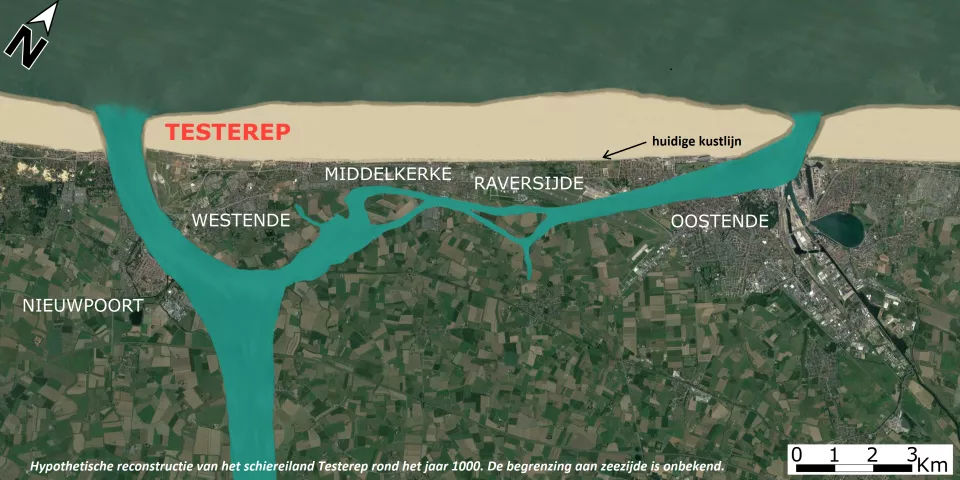Testerep
The Flemish coastal area has a long and complex history. The current appearance of the landscape is the result of the interaction between natural processes and human interventions. Research into the history of our coastal area has provided us with a great deal of fascinating knowledge. However, numerous questions remain open, for instance:
- How has the coastline evolved over the past 5000 years?
- What areas were flooded and eroded by storm surges?
- What archaeological traces of past habitation and exploitation have been preserved on land and in the sea?
An interdisciplinary team of researchers aims to answer these questions in the Testerep project. The project owes its name to the Testerep peninsula, once located off the Flemish coast between Nieuwpoort and Bredene but now partly swallowed by the sea, which is an interesting case study for studying the Flemish coastal landscape. Not least because researchers can build on the data and knowledge about the area that have already been gathered.

Research into the past environmental conditions and evolution of the coastal landscape on the one hand and how humans adapted to life in the coastal area on the other hand can teach us a great deal to sustainably manage the coastline in the future. That’s why the scientific data and knowledge gathered within the project will be transferred to various stakeholders, including policymakers, businesses and the general public.
To this end, the project partners strongly focus on the translation of the knowledge acquired into visualisations and communication products. This way, the Testerep project will make the general public aware of the coast’s dynamics and vulnerability, promote tourism, support heritage management and provide insights to sustainably manage the coast in the future.
Partners: VUB – Maritime Cultures Research Institute (MARI); Flanders Marine Institute (VLIZ); KULeuven – Hydraulics division; and howest – Digital Arts & Entertainment Research (DAE)
With the support of: Research Foundation – Flanders (FWO)
Contact: Soetkin Vervust


